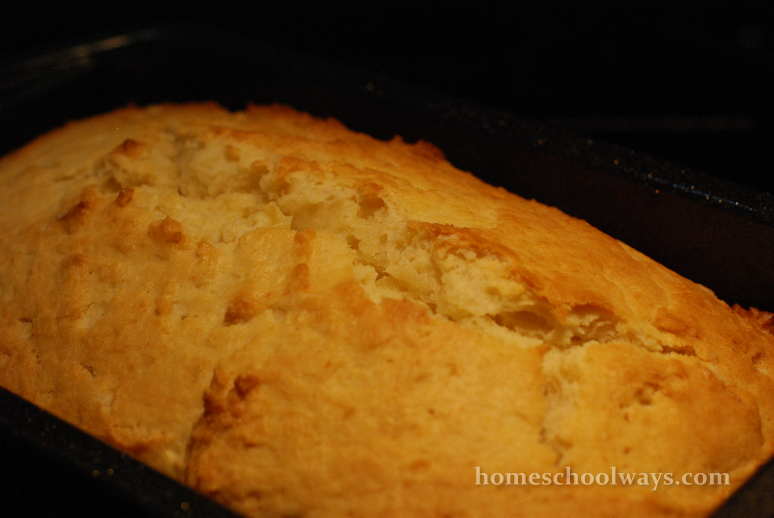Two years ago, when I heard about Bringing Up Bébé, I was not interested. The subtitle of the book is, “One American Mother Discovers the Joy and Wisdom of French Parenting.” I knew one thing about French parenting: it’s very hands-off, i.e. they put their babies in crèches (daycare for babies) at three months old and, later, they send them to all-day preschool at three. This is the way I was raised in Romania by my working parents.
Pas pour moi.
I have French friends and Romanian friends who live in Paris. I have read extensively about French culture. I had to, because I majored in French at the University of Bucharest. There are so many things I love about France. And then, there are things I just cannot accept for me, for my life, for my children and my lifestyle. If they want to do it, that’s their prerogative.
Besides, two years ago, I was coming out of the baby stage with my two children (they were four and two at the time). I felt it was too late to implement anything, even if I had a shred of interest in the French way of parenting.
But, the other day, at the library, I saw this book again. I felt the urge to read it. If nothing else, out of curiosity.
I read it in about three days, stopping only to provide meals and necessary care to my children. My husband said he had not heard me laugh out loud so much in a long time. Pamela Druckerman, the author, is a journalist by trade. She knows how to be funny, how to do research, and how to tell a story to keep you engaged.
Bonus: I got all kinds of French language pleasure thanks to all the French expressions peppered throughout the book (there’s a glossary in the front of the book for those who are not familiar with the language of Molière).
I knew what the joy of French parenting had to do with: less time spent with the kiddos means more time for mommy, mommy’s career, and mommy’s identity away from the children. Of course there is joy in not doing diaper duty 24/7. There is joy in somebody else potty training your child. There is joy in somebody else training your child to eat his spinach and not throw food. There is freedom in not being mom 24/7 and freedom brings about joy.
However, I don’t like what comes with it, right behind joy: separation from the child for eight hours a day. That’s non-negotiable for me.
Anyhow, I did find some pearls of wisdom. Let me share some of the things French parents do, which I think fall in the category of wisdom:
- Attend! (Wait!) – Since babyhood, French children are told to wait two minutes if mommy is in the middle of something. It helps with training babies to sleep through the night earlier and it helps with being able to have an adult conversation. It teaches children early on that the world does not revolve around them.
- No snacking other than the 4pm goûter, which is necessary, when your child eats at 8am, 12noon and then 8pm, as most French do. Druckerman calls it the national meal plan.
- “You have the right to…” or “You don’t have the right to…” – as soon as a child misbehaves, he is told he does not have the right to behave that way. It presents a different paradigm than disobeying a rule. It teaches the child he is an important person, with rights, but so is everybody else around him.
- Baking weekly with the children, as young as three-years-old – I actually made Gâteau au yaourt (Yogurt Cake) with my daughter. It’s the easiest cake French children bake for their first time in the kitchen. The recipe is given in the book, but we found that the baking time must be at least doubled, or the heat increased. Or something. We ate it all right. It was delicious, if only a bit too wet – but we need to tweak it a bit more. My daughter knows about dry ingredients and wet ingredients as a result.

Our second attempt: we used a round cake pan and we added the recommended amount of frozen berries for a variation
- Talking to children – as early as infancy – about your expectations of them
- Le cadre (The framework) – clear boundaries set up for children (you absolutely may not come into mommy’s room in the morning on weekends, or hit a parent, or use a disrespectful tone, or throw food, for instance); but, inside those boundaries, absolute freedom allows children to develop their own interests and personality
- Faire l’éducation (literally, to make the education – i.e., to give your child instruction on how to be, how to live) – it tilts the whole parenting gig towards instruction and a professional attitude towards their own children, and away from the emotional reactions that drive us to discipline our children and dole out consequences as soon as they disobey. It also helps with not taking things personally. When you view yourself as a life teacher for your child, you become less of a policeman for his actions.
- Des bêtises (naughty acts performed by children, which are considered normal, acceptable for their young age) – drawing on furniture or the wall would be examples of bigger bêtises. Still, many French parents will not discipline their children for such acts of naughtiness. It’s an interesting concept which helps parents relax and not feel like they have to find a consequence or lose their temper for every childhood accident or broken glass.
When Druckerman’s oldest child goes to school and the teacher does not give the mom any details about her daughter’s performance in school, I have a problem. So does Druckerman, but she seems to accept that that’s just what they do in France. She is told that her daughter is “competent.” She moves on.
Like I said above, the book is hilarious. At least, for me, this side of parenting. And it’s pleasant, if you like French or the French culture at all. But I do not agree 100% with the French ways. And that’s OK.


Interesting review. Thanks for sharing. And my kids are begging me to bake with them, so I’d better get off of my computer…
Thanks, Rhonda. 🙂 It’s a really funny book.